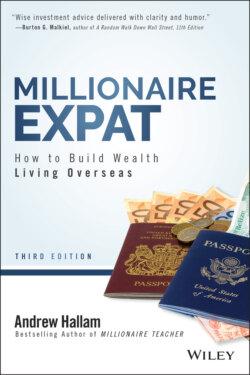Читать книгу Millionaire Expat - Andrew Hallam - Страница 30
Financial Advisors Touting “The World Is Flat!”
ОглавлениеYour financial education is the biggest threat to most globetrotting financial advisors seeking expatriate spoils. Consequently, many are motivated to derail would‐be index investors from gaining financial knowledge.
Self‐Serving Argument Stomped by Evidence
Here is one of the most common arguments you'll hear from desperate advisors hoping to keep their gravy trains running:
Index funds are dangerous when stock markets fall. In an active fund, we can protect your money in case the markets crash.
This is where a salesperson tries scaring you—suggesting that active managers have the ability to quickly sell stock market assets before the markets drop, saving your mutual fund assets from falling too far during a crash. And then, when the markets are looking safer (or so the pitch goes), a mutual fund manager will then buy stocks again, allowing you to ride the wave of profits back as the stock market recovers.
There are problems with this smoke screen. First, nobody should have all of his or her investments in a single stock market index fund. They should own a global representation of stocks and a bond market index for added stability. Bonds are loans investors make to governments or corporations in exchange for a guaranteed rate of interest.) If the global stock markets dropped by 30 percent in a given year, a diversified portfolio of stock and bond market indexes wouldn't do the same.
Have some fun with self‐proclaimed financial soothsayers. Ask which calendar year in recent memory saw the biggest stock market decline. They should say 2008. Ask them if most actively managed funds beat the total stock market index during 2008. If they say “yes,” you've exposed your Pinocchios.
SPIVA published detailed proof. In 2008, US stocks plunged 37 percent. But despite that horrible year, the US stock index beat 64.23 percent of actively managed US stock market funds.13
Global stocks fell 40.11 percent in 2008. Yet the global stock market index still beat 59.83 percent of actively managed global stock market funds during that calendar year.14
Warren Buffett wagered a $1 million bet in 2008, unveiling more damning evidence against expensive money management. A few years previously, the great investor claimed nobody could handpick a group of hedge funds that would outperform the US stock market index over the following 10 years.
Hedge funds are like actively managed mutual funds for the Gucci, Prada, and Rolex crowd. To invest in a hedge fund, you must be an accredited investor—somebody with a huge salary or net worth. Hedge fund managers market themselves as the best professional investors in the industry. They certainly have plenty of flexibility. Hedge funds (according to marketing lore) make money during both rising and falling markets. Managers can invest in any asset class they wish; they can even bet against the stock market. Doing so is called “shorting the market,” where fund managers bet that the markets will fall, and then collect on those bets if they're right.
Buffett, however, doesn't believe people can predict such stock market movements, charge high fees to do so, and make investors money.
